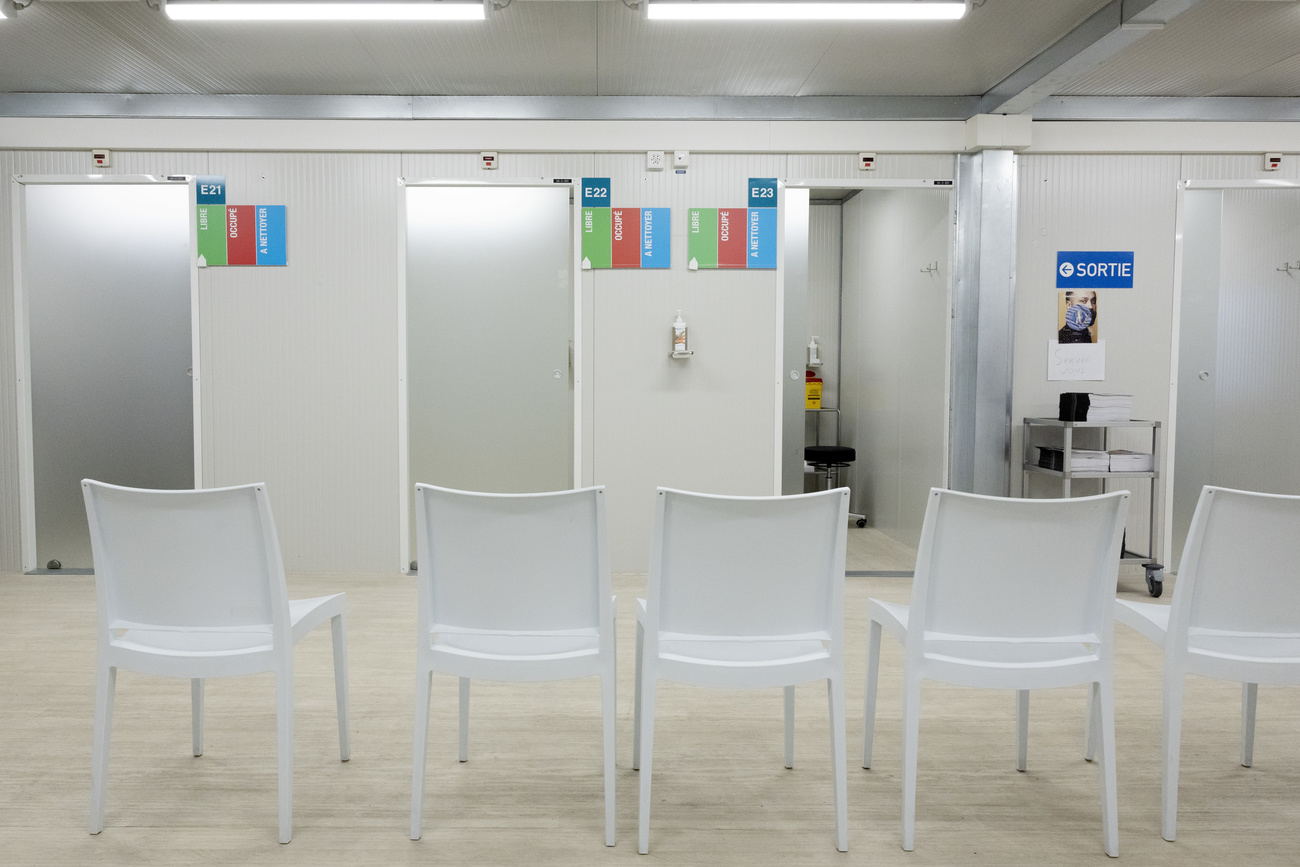
Swiss commodity traders at the forefront of best practices
Switzerland is at the forefront of best practices when it comes to addressing modern supply chain challenges, argues Stéphane Graber of the country's trading and shipping association.
In 2013 the Federal Council published the Background Report on CommoditiesExternal link, underscoring the economic importance of commodity trading for Switzerland, an activity representing 3.8% of the Swiss GDP and numerous jobs in all regions of Switzerland. It also underlined some of the challenges faced in commodity trading and the criticism from some advocacy NGOs, revealing a gap in understanding of the role and function of commodity trading.
In the five years following the publication of the Background Report, the Swiss Trading and Shipping AssociationExternal link (STSA) has walked the talk. Relying on the expertise of all its members, STSA has proactively engaged in a constructive approach and participated in a multi-stakeholder initiative for the elaboration of a Guidance on Implementing the UN Guiding Principles on Business and Human Rights (UNGPs), together with the Swiss authorities and representatives of civil society.
New guidance
The new Guidance, published by the Swiss authorities on November 28, is an important milestone in this process of continuous dialogue. It has enabled a better understanding of the commodity trading activity and the challenges related to human rights. It also responds to a key priority for companies in the field of human rights, namely the illustration of practical examples on what is expected of companies in the implementation of the UNGPs.
STSA is fully committed to the promotion of the UNGPs, including through this new Guidance, its Code of Conduct. This commitment is reflected in the launch on November 13 of a dedicated training course with the new STSA Certificate on Business and Human Rights, and an online platform for facilitating exchanges on best practices for companies active in commodity trading. These exchanges help to address and overcome problems faced, for example, by SMEs not having the resources to engage directly with local communities in high risk countries and who seek alternative ways on how to proceed.

STSA and its members did not stop there. They have actively engaged in the Swiss Centre of Expertise in Human Rights as a member of its Advisory Board by supporting the creation of a Swiss National Human Rights Institution in line with the Paris Principles. In parallel, STSA members have further developed their risk management systems with a particular focus on human rights in an increasingly challenging international context. Such challenges include the negative impacts on local communities in the case of withdrawal of a company following the introduction of sanctions.
A platform for exchange
Given the international nature of the commodity trading activity, unilateral action by Switzerland would be largely ineffective to address modern supply chain challenges. Adapted regulation in this area can only be international and multilateral. For this reason, STSA and its members are active in the pilot project on the implementation of the OECD-FAO Guidance for Responsible Agricultural Supply Chains. The aim of the project is to offer a platform of exchange for companies and trade associations on best practices and challenges.
STSA welcomes the new federal report assessing the current situation and outlook of the Swiss commodities sectorExternal link. Building on several progress reports and published on November 30, this report acknowledges the work that commodity trading actors have undertaken during these five years, as well as the importance of maintaining the competitiveness of commodity trading in Switzerland which contributes CHF25 billion in revenue for the country.
While Switzerland remains an attractive location, the hub is under constant pressure given the attractiveness of Singapore, Dubai and London. Ensuring good framework conditions is therefore key. In this context, the real challenge will be to diffuse Swiss best practices worldwide and support a level-playing field. An isolated action of Switzerland will not help to meet the objectives of improving the integrity of global supply chains.However, tomorrow’s challenges will be completely different due to the emergence of new technologies and digitalisation. We believe some of the highly complex issues such as traceability or transparency that we confront today will be addressed more easily in the near future. Ensuring good framework conditions that allow one to be at the forefront of innovation will therefore be critical for Swiss commodity trading in the coming years.
The views expressed in this article are solely those of the author, and do not necessarily reflect the views of swissinfo.ch.
_

In compliance with the JTI standards
More: SWI swissinfo.ch certified by the Journalism Trust Initiative







































You can find an overview of ongoing debates with our journalists here . Please join us!
If you want to start a conversation about a topic raised in this article or want to report factual errors, email us at english@swissinfo.ch.